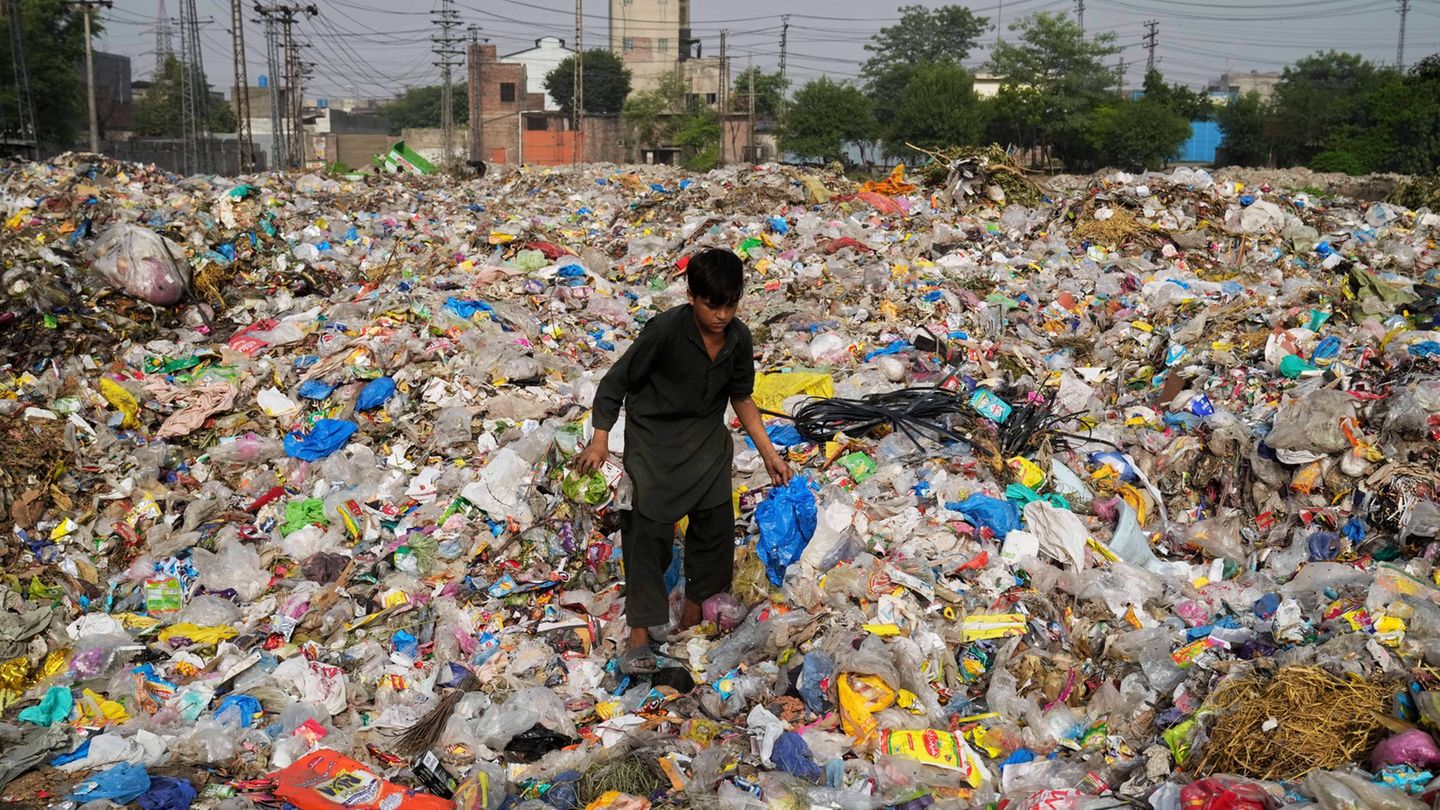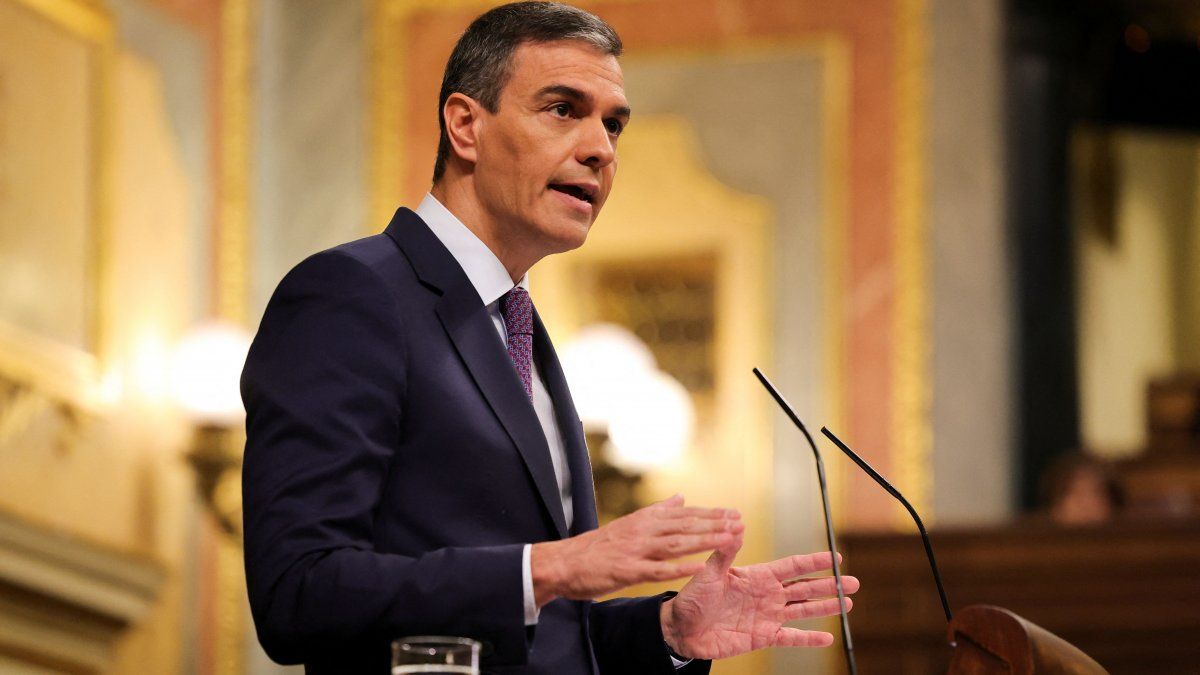Waste and the environment
Agreement on the UN plastic waste contract remains uncertain
Copy the current link
Add to the memorial list
Everyone agrees with the problem: plastic waste is filled with the world and is a danger to humans. But an agreement on a global UN contract is difficult.
After hours of negotiations until late at night, the planned UN agreement against plastic waste is still not under roof and subject. Apparently the conference chairman sees an opportunity for an agreement. That is why he interrupted the plenary session of the approximately 180 countries for a few hours shortly before midnight. It should go on on Friday.
“The process in Geneva is becoming more and more a farce,” said a German representative of the WWF environmental foundation, Florian Titze. An agreement on the smallest common denominator is not a solution “for the global plastic crisis”. The WWF called on countries such as Germany and a good 100 more, who want an ambitious contract, to include new negotiations outside of these UN efforts as the “coalition of the willing”.
Opaque negotiations
Contrary to his promise, the chairman Luis Vayas Valdivieso did not succeed in submitting a new compromise proposal for the contract text on Thursday. His attempt on Wednesday with a text that was flushed with many softly flushed without any ambitions had been rejected by dozens of countries.
He was reportedly in a small circle with a dozen countries that have weight in their respective regional group, tried to get a new text on his feet all day. Nobody knows what approaches. Everything takes place behind closed doors. However, it was unofficially said that there was movement in the conversations.
The deadline for completion of the contract text was actually going until Thursday after three years of negotiations and the ten -day final round in Geneva. If there is still an agreement, the text would have to be signed at a later diplomatic conference. With the necessary ratifications in the national parliaments, it should take a few years before it could come into force.
Consulting countries and brakes argue
The goal is a legally binding contract to contain the tons of plastic waste that destroy ecosystems and endanger people’s health. The contract is intended to include the entire life cycle of the plastic, from production to design to the handling of waste.
Around the text essentially takes place between two groups: Germany and more than 100 other countries want to limit plastic production to a sustainable level, move disposable plastic such as cutlery, cups and packaging and rely on reusable products, recycling and circular economy. On the other hand, there are countries that have the raw material for the plastic: oil. Among them are Saudi Arabia, Iran and Russia. These states do everything to prevent production restrictions.
Plastic is filled with seas, environment and air, kills fish and other living things and endangers human health. The smallest particles are increasingly found in organs and also in the brain.
dpa
Source: Stern
I have been working in the news industry for over 6 years, first as a reporter and now as an editor. I have covered politics extensively, and my work has appeared in major newspapers and online news outlets around the world. In addition to my writing, I also contribute regularly to 24 Hours World.




